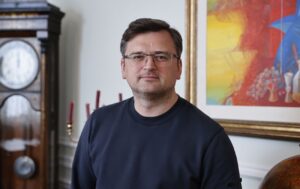
Foreign Minister Dmytro Kuleba said on Monday that he has submitted to Ukrainian President Volodymyr Zelensky nominations for Ukraine’s ambassadors to China, India and Brazil.
Kuleba said on Facebook that the Foreign Ministry has created an open search for Ukraine’s ambassadors, and the vacancy is currently open for 21 countries except China, India and Brazil.
“As a final note: you may note that China, India and Brazil are not among the list of countries. And you would be right. This is because I have already submitted to the President of Ukraine candidates for ambassadors to these countries. You will know their names after the publication of the corresponding decrees. I will only say that we plan to send to such special countries specialists in state work experience at the level of ministers and deputy ministers”, – Kuleba wrote.
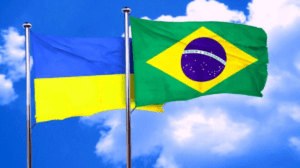
Ukrainian President Vladimir Zelensky noted the resumption of high-level contacts with Brazil. “Just talked to the president of Brazil. Useful conversation. Resuming contacts between our states at the highest level,” he said in a video message on Thursday.
“I informed about the Russian attacks against our people, the killing of children, the strikes on our civilian infrastructure. Thanked Brazil for supporting our resolution on peace and territorial integrity for Ukraine. We discussed diplomatic efforts that can stop Russian aggression and bring peace back to our country, the region and the world,” he said.
According to Zelenskyy, in his conversation with the Swiss president, he “thanked for the support package for Ukraine, for our people. We discussed further bilateral cooperation and possible interaction on international platforms.”
“I heard that Switzerland is interested in the implementation of our peace formula. This is a very good signal,” he said.
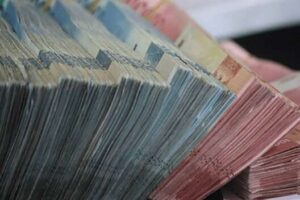
Argentine Economy Minister Sergio Masa said work on the establishment of a joint Argentine-Brazilian currency will begin as early as this week, the Argentine press reported.
“There is a decision to start studying the parameters necessary to create a common currency, this concerns everything from taxation issues to the size of the economies and the role of central banks,” Masa said in a conversation with Argentine journalists.
“The goal is to give impetus to regional trade and reduce dependence on the U.S. dollar,” the minister added.
“We have to explore the mechanisms of commercial integration. I am not going to speak with false expectations, because this is only the first step in the long journey that Latin America must take,” Masa stressed.
However, the project initiated by Argentina and Brazil is not limited to these two countries. Other countries in the region may join the initiative in the future.
The idea of creating a common currency for the two countries was voiced at a recent meeting between the presidents of Argentina and Brazil, Alberto Fernandez and Luiz Inácio Lula da Silva.
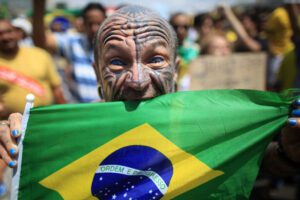
Citizens of Brazil on Sunday will vote in a general election, which will determine the new president and vice president of the country, the composition of the National Congress (parliament), governors, lieutenant governors and deputies of state legislatures.
The main attention is riveted to the election of the head of state. Seven candidates are vying for the post, but two have the most support among the Brazilian population: incumbent President Jair Bolsonaro and former President Luiz Inacio Lula da Silva. Bolsonaro is a right-wing politician, while Lula da Silva represents the left.
According to the latest Datafolha poll before the vote, Lula da Silva could get 50% of the vote in the first round, and Bolsonaro – 36%. The remaining votes were distributed among five more candidates. Observers note that it cannot be ruled out that Lula da Silva, despite a large lead over Bolsonaro, will not be able to achieve election in the first round.
To win in the first round, a candidate needs to get more than 50% of the votes. If this fails, then a second round is held between the two strongest candidates.
Lula da Silva is 76 years old, he was previously going to take part in the 2018 elections, but he could not do it, as he was convicted and ended up in prison. Despite this, the Brazilians continued to have sympathy for him, and, judging by the polls, even behind bars, Lula da Silva remained the most popular politician in the country.
As a result, the Brazilian Workers’ Party nominated Fernando Addada as a presidential candidate in his place. This politician lost to the current President Bolsonaro.
Lula da Silva ruled Brazil from 2003 to 2010, and in 2017 he was sentenced to nine and a half years in prison for money laundering and corruption. Later, the term was increased to 12 years. He himself never admitted his guilt, his lawyers eventually managed to appeal the verdict. In 2021, the country’s Supreme Court annulled his anti-corruption conviction. Now he can run for reelection again.
Brazilians remember his period in office due to his socially oriented economic policy, and the current election program is also built with a leftist bias: he focuses on the poorest segments of the Brazilian population, promises to expand social programs and increase funding for infrastructure projects, intends to fight for the conservation of forests in the Amazon in in contrast to Bolsonaro, who was criticized for heavy deforestation during his term.
Bolsonaro, 67, is a former military and congressman who was known in Brazil for his controversial remarks about ethnic and sexual minorities and women, as well as for his far-right conservative views, even before he assumed the presidency, and has repeatedly expressed nostalgia for military dictatorship in Brazil.
Bolsonaro has been criticized by many Brazilians for what they see as downplaying the severity of the COVID-19 pandemic. Polls showed that the citizens of the country believe that there is corruption in the government under Bolsonaro and that he is incapable of governing the country. Polls conducted throughout August and September indicated that Bolsonaro’s approval rate had fallen to record lows, with between half and two-thirds of respondents disapproving of his work at various times.
During the election campaign, Bolsonaro continued to voice conservative views, promising to defend the traditional values of Christians, criticize the country’s electronic voting system and even members of the election commission that they are “working against him.” Brazilians will remember his campaign for scandals: Bolsonaro made harsh, radical statements, which were then actively distributed on social networks, once he got into a fight with a blogger who criticized him at a public event.
In addition, Brazilians on Sunday will elect 27 out of 81 senators, 513 members of the Chamber of Deputies, 27 governors and members of state legislatures.

Ukrainian athletes won six medals on the eleventh day of the Deaflympic Games in Caxias do Sul (Brazil), the Ministry of Youth and Sports reported.
According to the press service of the ministry, at the XXIV Summer Deaflympics, the national deaflympics team of Ukraine on the eleventh day won 6 more awards – 3 gold, 1 silver and 2 bronze.
In particular, Ukrainians won four awards in long-distance orienteering: Anna Fedoseeva and Alexander Sankin brought gold, Ruslan Nikolaenko and Anna Androsovich won silver and bronze, respectively.
The Ukrainian national team won two more awards in bullet shooting: Violeta Lykova won the gold medal in shooting from a small-caliber rifle from three positions, and Sergey Fomin won a bronze medal in high-speed shooting from a small-caliber pistol, 25 m.
Thus, Ukraine remains the absolute leader in the medal count with 116 awards, including 51 gold, 31 silver and 34 bronze medals.
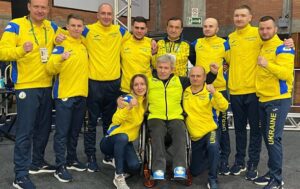
Ukrainian athletes won thirteen medals on the seventh day of the Deaflympic Games in Caxias do Sul (Brazil), the Ministry of Youth and Sports reported.
According to the press service of the ministry, at the XXIV Summer Deaflympics, the national deaflympics team of Ukraine won 13 awards on the seventh day – 8 gold, 1 silver and 4 bronze.
In particular, the gold medals for Ukraine were won by: Elisaveta Topchanyuk (cycling, criterium), Nazar Levitsky, Anna Fedoseyeva (orienteering, mixed relay), Oleksiy Lazebnik, Inna Afonchenko (ball shooting, 10 m air pistol, mixed), Natalka Ursulenko ( shot put), Maxim Ovcharenko, Roksolana Budnik (table tennis, mixed team), Irina Tereshchenko (swimming, 100 m breaststroke), Dmitry Rudenko, Sergey Drach, Solomiya Kuprich, Kristina Kinyaikina (athletics, mixed relay 4×40) and swimmers Artem Karnysh , Ivan Zinenko, Maxim Dudnik, Vladislav Adamovich in the 4x200m free style relay.
Athlete Yekaterina Potapenko won silver in the heptathlon.
Bronze was won by Nikolay Nosenko (athletics, 100m), Vladislav Kremlyakov (swimming, 50m backstroke), Maria Levanovich (taekwondo, up to 67 kg) and Gennady Zakladnoy and Yulia Khodko in table tennis among mixed teams.
In general, the national Deaflympic team of Ukraine won 77 medals: 39 gold, 16 silver and 22 bronze, and continues to occupy a leading position at the Summer Deaflympiad.